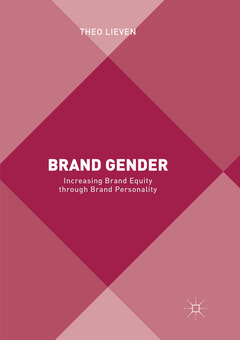Description
Brand Gender, 1st ed. 2018
Increasing Brand Equity through Brand Personality
Author: Lieven Theo
Language: English
Subject for Brand Gender:
Approximative price 94.94 €
In Print (Delivery period: 15 days).
Add to cartPublication date: 08-2018
Support: Print on demand
Publication date: 10-2017
Support: Print on demand
Description
/li>Contents
/li>Biography
/li>Comment
/li>
This book explores ways to drive and increase a brand?s most important property, its equity. Focussing on gender, the author analyses the impact of assigning personalities and characteristics to products and how this can affect the management of brands on a global scale. Using detailed examples, the author argues that brands with low masculine and feminine characteristics have the lowest equity, whilst brands with both high feminine and masculine characteristics are shown to have the strongest equity. Including notions of androgyny in brands, this significant study reveals the different factors which can affect a brand being perceived as either masculine or feminine. Aiming to develop a comprehensive theory and provide practitioners with a guide to increasing the equity of their brands, this controversial and pioneering book lays the foundation for creating a global brand personality model.




